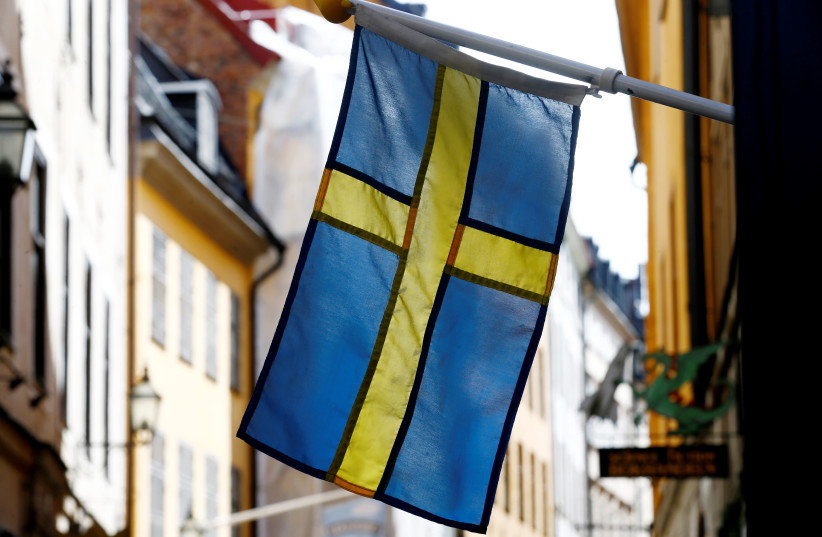Sweden has been at the forefront of tensions in Turkey due to Ankara claiming to be angered over the burning of a Koran by a far-right extremist in Stockholm. Now, pro-government and state media in Turkey appear to be trying to put Sweden’s Jewish minority, Jewish history and Israel in the middle of the controversy.
It is not fully clear how the Koran burning came about or who backed it, but Turkey has used it as an excuse to prevent Sweden from joining NATO. Turkey had already objected to Sweden joining the alliance, claiming it wanted numerous “terrorists” deported. But it has now upped its rhetoric.
Ankara is currently in the middle of an election season, and its AKP ruling party wants to use the anti-Sweden feelings to fuel its platform, which includes defending Islam and Muslims.
AKP is rooted in the Muslim Brotherhood. Historically, it has also stoked tensions with Israel, with Turkish President Recep Tayyip Erdogan even comparing Israel to Nazi Germany in 2018 and 2019.
Today, Turkey and Israel have reconciled, but that doesn’t stop Turkey from exploiting the Jewish people’s suffering in its fight with Sweden.

For instance, in the wake of the Koran burning, Turkey first condemned Islamophobia and claimed that holy books must not be insulted. Then, it changed its narrative. It turned out that a local activist in Sweden – to get back at a far-right person for burning the Koran – burned the Torah.
This is a classic Islamic tactic – to try to “get back” at Europe for insulting Muslims by attacking Jews. For instance, when the media in Europe ran cartoons about the Prophet Muhammad, Iran held Holocaust denial contests.
Instead of showing tolerance in the face of Islamophobia, the Islamist governments attack Jews.
Turkey’s state media TRT is part of this machination as well.
“Sweden’s hypocrisy exposed as a protest outside Israeli embassy averted,” it reported. “The planned protest, intending to burn a scroll of Torah outside the Israeli embassy in Stockholm, has been called off after the involvement of senior Israeli and Swedish officials.”
Turkey’s government signed off on the framing in TRT.
“It took a flurry of activity on part of Swedish officials, Israel’s Foreign Ministry and its embassy to stop protesters who wanted to burn a Torah scroll in Sweden’s capital Stockholm,” TRT reported. “A group of extremists requested a permit from the police, seeking to stage a protest outside the Israeli embassy in Stockholm, where they intended to burn a scroll of Torah, Yeni Safak, an online news portal based in Turkey, reported. In clear contrast, and in an act that reflected Sweden’s blatant hypocrisy, far-right racist leader Rasmus Paludan was allowed to burn a copy of the Koran outside the Turkish embassy in Stockholm on January 21.”
Why would they want to burn a Torah scroll?
Why would the “extremists” want to burn a Torah scroll in front of the Israeli Embassy? Note how Israel’s holy book as well as the Israeli Embassy are brought into the dispute between Turkey and Sweden.
Jews are a tiny minority in Sweden, and Israel is a small country, but Turkish media is fanning the flames of this incident. Turkey says it “condemns in the strongest possible terms the vile attack on our holy book, the Koran.” But when it comes to burning the Torah, Turkish media says it is “hypocrisy,” arguing that it’s wrong to burn the Koran, but it’s natural to balance that act by burning Jewish scripture.
Note as well that Ankara’s media machine never suggests burning the Christian bible, something that would offend Turkey’s allies in Moscow. Only Jews are singled out to be “used” against Sweden.
In another instance of odd timing in Turkey, pro-government Anadolu media ran an entire article in the wake of Holocaust Remembrance Day on Friday, claiming “Sweden’s restrictive immigration policy fueled Jewish sufferings during Holocaust.”
“Depending on the course of the war, the Swedes sometimes tended to act more pro-German,” the report said.
This is not a normal news article that appeared out of nowhere; rather, it is clearly part of Ankara’s campaign against Sweden. It is also not written like a news article but like an op-ed describing European hypocrisy.
This reads similar to the TRT piece on the attempted Torah scrolls burning.
“Nazis, the main architect of the exodus of Jews from their homelands across Europe and the culprits of this greatest crime against humanity, had knowing or hesitant accomplices amongst some countries that now form the European Union – the now-champions of human rights,” the article said.
“Sweden has got a dark part in the Holocaust with its so-called ‘neutral’ state during the war,” it added.
There is a place for normal news articles looking at neutral countries during the Shoah and whether they did enough for Jews fleeing the Nazis. However, Ankara’s state-media and the pro-government decision to suddenly bring this up appears contrived.
The use of the Holocaust by Ankara and the regimes allied to it is common. Iran, as noted, has held Holocaust-denial cartoon contests to get back at European publications that are seen as anti-Islamic.
In 2021, Pakistan’s far-right leader Imran Khan also brought up the Holocaust when discussing the “abuse of our prophet.”
In general, this usage of the Holocaust is staged to push Holocaust denial. Turkey’s leadership doesn’t really care about Holocaust denial, but they care about using it when necessary.
